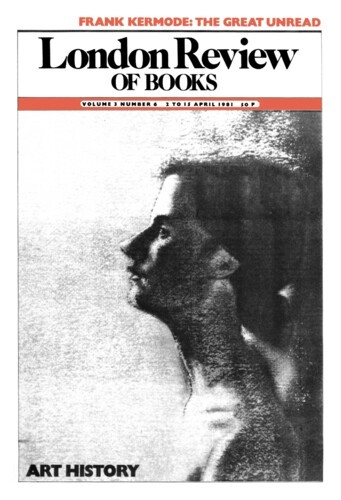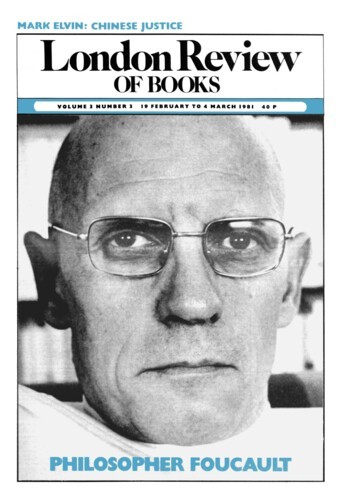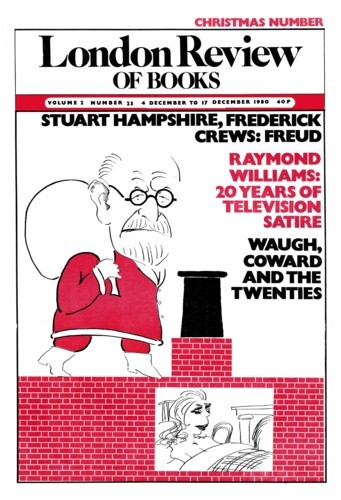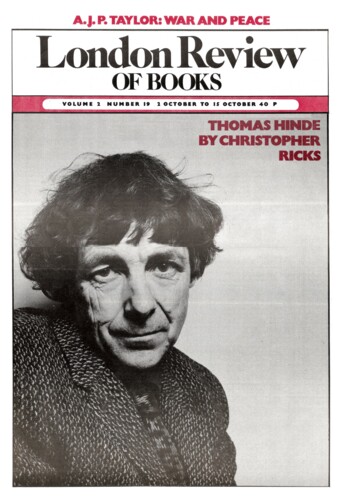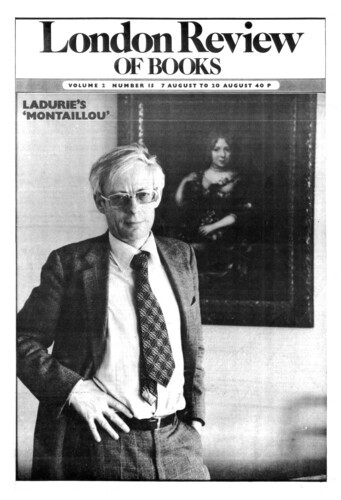Point of Principle
Michael Irwin, 2 April 1981
The Country, which is concerned with old age, death and family bereavement, is adroitly restricted to an account of four visits. The first two, at intervals of a year, are paid by Daniel Francoeur, an American writer long resident in London, to his aging parents in Rhode Island. He finds them unhappy, constrained by repressed hostility and old disappointments. His mother, now an invalid who confines herself to the house, has borne seven sons. She sees herself as the victim of her husband’s sexual appetites. She resents his lack of sympathy with her tastes, her humour. For his part, he feels a failure: he carries the wound of dismissal from his life-long work as a toolmaker through having broken a strike on a point of principle.
